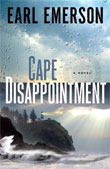Comparisons seem inevitable, at least in part because no one seems exactly sure what kind of books she writes. Some have argued that they’re not mysteries simply because, well, they’re not all that mysterious. Yet the action takes place entirely around a fully

dysfunctional family of private investigators who do PI work on each other just as a matter of natural course.
The family, of course, are the Spellmans and the comparisons all leave much to be desired. They do, however, instruct in one regard: if an author is repeatedly compared to
Carl Hiassen and Janet Evanovich, you understand that the books in question are funny. And Lisa Lutz’ Spellman books are certainly that.
Lutz’ humor is darker than Hiassen’s, though. More subtle than Evanovich’s and more sophisticated than either of those authors. In some ways, these are the books Meg Cabot’s grown up readers have been waiting for. The gentle subversiveness that Cabot displayed in her earliest books for young adults is here, but overrun and run amok without the constraints that might be put on an author concerned with offending an audience… or their parents.
Lutz has said she wrote
The Spellman Files, her first novel, after a movie script she’d worked on for a decade was made into
a dreadful film. It’s a story she
told engagingly in Salon in 2005.
After that experience, she vowed (though I can almost see the laughter in her eyes when she reads that “vowed”) to turn her writing to projects over which she would have full control. Clearly the results of that experiment have paid off... for all of us.
The third Spellman book,
Revenge of the Spellmans (Simon & Schuster), is published today. A fourth is in progress and all of that is good news because a lot of us just can’t get enough of those crazy Spellmans.
 A Snapshot of Lisa Lutz...
A Snapshot of Lisa Lutz...Most recent book:
Revenge of the SpellmansBorn: As far as I know
Reside: San Francisco (for now)
Birthday: March 13th
Web site:
lisalutz.comWhat’s your favorite city?I think it’s Edinburgh, Scotland.
You only have six hours to spend there. What do you do?I don’t know. I’ve never been there.
What food do you love?Licorice.
What food have you vowed never to touch again?Poutine.
What’s on your nightstand?NyQuil, aspirin, dust, an alarm clock, a lamp, some books.
What inspires you?Coffee and fear of having a real job.
What are you working on now?I’m “working” on the fourth book in the Spellman saga --
The Spellmans Strike Again.
Tell us about your process.I’m a total computer girl -- can barely use a pen anymore. I’m the most lucid first thing in the morning and then I go downhill after that. I write until I feel my mind slipping and then I call it quits. I don’t outline in detail, but I keep

a giant bulletin board and I feed it with index cards that can include anything from a joke to a major plot point. When I begin a novel, I just have a vague arc which I add to as I write. I use a daily word quota to keep me on point, as well as some mental threats. Sometimes I nap and hope that inspiration will hit me. I use booze only when necessary.
Lift your head and look around. What do you see?A giant cement pillar, a computer, and a box of SpongeBob Band-Aids.
When did you know you wanted to be a writer?When I realized that any other job I could get sucked.
If you couldn’t write books, what would you be doing?Temping, most likely. Or motivational speaker.
To date, what moment in your career has made you happiest?The day I got my first book deal.
For you, what is the easiest thing about being writer?Work attire. I’ve always wanted a job where you can wear pajamas all day.
What’s the most difficult?Touring. More specifically, the travelling/sleep deprivation part of book tours and the not-wearing-pajamas part.
What question do you get asked about your writing most often?Are your novels autobiographical? (My mom likes to ask that question whenever she’s at a reading.)
What’s the question you’d like to be asked?“Can I buy you a drink?”
What question would like never to be asked again?“Do you have your license and proof of insurance?”
Please tell us about Revenge of the Spellmans.It’s the third installment of the Spellman series. My main character finds herself involved in therapy, blackmail, an SAT cheating scandal, and, well, revenge.
Tell us something about yourself that no one knows.I refuse to answer that question.
Labels: Author Snapshot, crime fiction, fiction, interview
 of Anubis (Brindle & Glass) a novel that looks at love and unhappiness in entirely new ways.
of Anubis (Brindle & Glass) a novel that looks at love and unhappiness in entirely new ways.

































